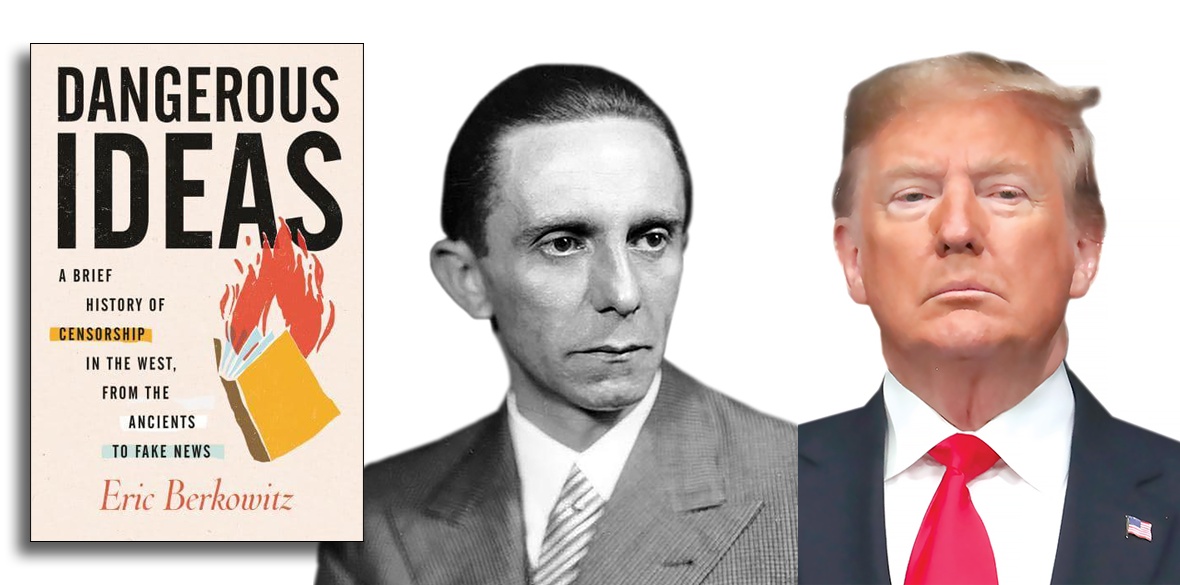This is the last article you can read this month
You can read more article this month
You can read more articles this month
Sorry your limit is up for this month
Reset on:
Please help support the Morning Star by subscribing here
Dangerous Ideas
by Eric Berkowitz
(The Westbourne Press, £20)
LIKE Medgar Evers, the African-American civil rights martyr who claimed you can kill a man but you can’t kill an idea, in this book Eric Berkowitz asserts that “censorship doesn’t work.”
It was Plato, whose mentor Socrates committed suicide because of censorship, that Berkowitz believes imposed the “constellation of restrictions... on the hapless citizens of his imagined Republic which have hung like a stench over discussions about censorship for two millennia.”
Early censoring of challenging ideas was the province of religion and the state, the former enforcing its power through the destruction of “heretical” texts, the latter by terror and intimidation.
The advent of printing in the 15th century saw the explosion of both religious and political censorship in the interest of establishment power. If any pretext were needed, hadn’t Plato taught that the ruling class had a duty to mould minds for their own good?
The balance between censors and the censored alternated with historical events. During the English Revolution and Civil War, the government’s press censorship temporarily broke down under a barrage of popular pamphlets questioning whether and how speech should be regulated.
Post-French Revolution, in the 19th and early 20th centuries, the popularity of theatre and especially early film heightened the need for censorship “driven by the morbid conviction among the governing classes that an informed populace would become an inflamed populace.” And the power of religion, “the opium of the masses,” came under increasing attack.
Amusingly, where the 1848 Communist Manifesto was seen as dangerous, the translation of Marx’s Das Capital in 1867 was allowed publication in Russia, as its socialist message was deemed buried in a “colossal mass of abstruse, somewhat obscure arguments.”
Berkowitz tackles the contemporary world, one launched by world wars and now immersed in the technical internet cacophony of voices “screaming at the crowd,” and engages in a sharply honed analysis of the complex and ongoing struggle for power over the people between states and corporations.
In the US, Facebook and Google have even used the First Amendment’s protection of free speech to prevent legal attempts to limit or exclude hate speech online, while at the same time accommodating the profit motive of big business in its need for audiences.
Increasingly, power to suppress speech depends on control of the medium. The post-second world war West has seen “a breath-taking expansion of freedom of speech rights” transformed from apparent victory to a hugely problematic failure as Trump, following in the footsteps of Goebbels, redefined the language of objective reality which was seized on by an army of social media trolls and bots peddling their hate agendas.
As our government, with its umbilical-cord attachment to big business, moves ever more into building its surveillance and control society, the need, power, control and ambiguity of censorship must be recognised to defend human rights. This book supplies a useful and engaging grounding.











